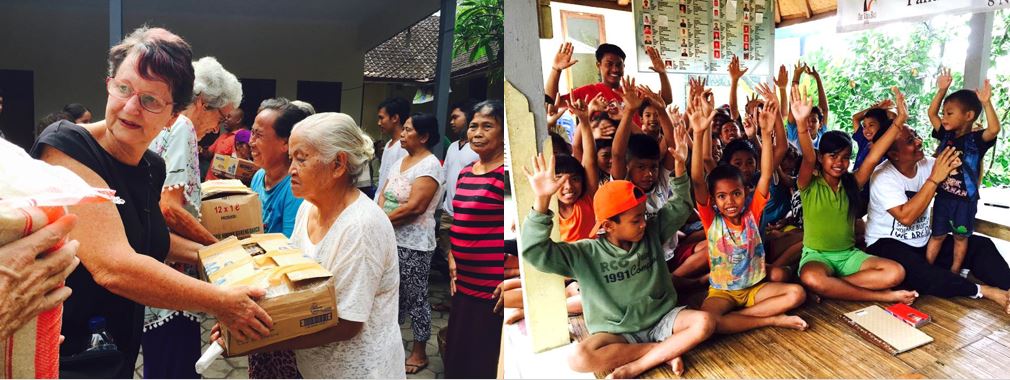Community Aid
Orphans
We support a Children’s Home called Destawan, with 30 children from age 3 – 21, by providing food supplies & school supplies. Some are orphans; some abandoned by their parents; some left at the home by parents who cannot afford to school them and hope that this way they get an education. All school-aged children are on scholarship. 5 children are in University. Pak Ketut Sukresna, the head of the Home is an Assistant Headmaster who is convinced that education is the children’s way to a better future. In addition to normal classes, the children get supplementary classes in Balinese gamelan, dance, English and computers. Currently, Pak Ketut has started a free kindergarten, not just for the children in the home but for all children in the nearby village. The children enjoy a rural lifestyle, looking after their own chickens, pigs and cows. Unlike many other orphanages in Bali which are run by Christian, Islam or Indian Hindu foundations, Destawan is run following traditional Balinese practices, which allows the children a greater continuity with their lives before entering the home. We support the home with funds for electricity, water, schoolbags, shoes and a small stipend for students at nursing college or university.
In addition our yayasan provides several orphans living with their extended families in Tejakula (uncle, aunt, grandmother) ages 5 – 17, with a monthly stipend to cover school fees & expenses, courtesy of our guests.
Elderly
We provide sembako (9 basic foodstuffs) once a year to poor elderly folk in Tejakula. In 2022, we provided sembako for 200 elderly people. They were selected jointly with an NGO, Semeton Tejakula Peduli (STP) and with village authorities, based on inability to work, health concerns and financial need. We have also given support to the poor and elderly by way of subsidised/ free rice, as well as provided funds for disabled and physically impaired women suffering from an incurable genetic disease. We thank our donors, who have provided furnishings and funds for food and living expenses, for this most vulnerable segment of our community.

